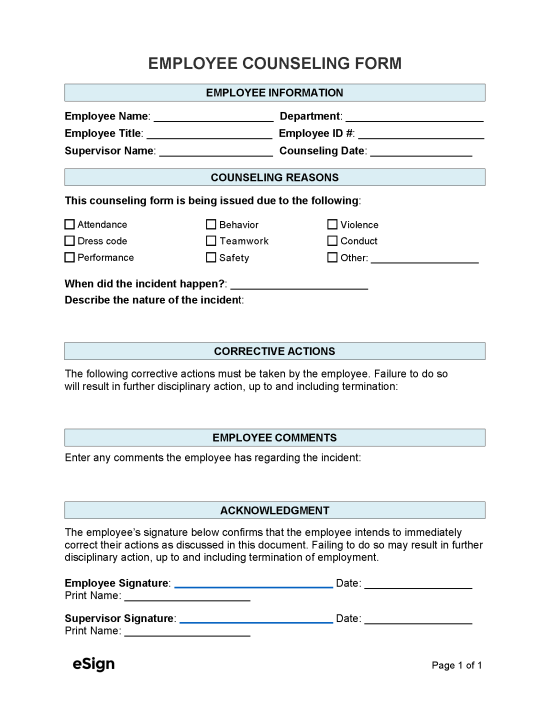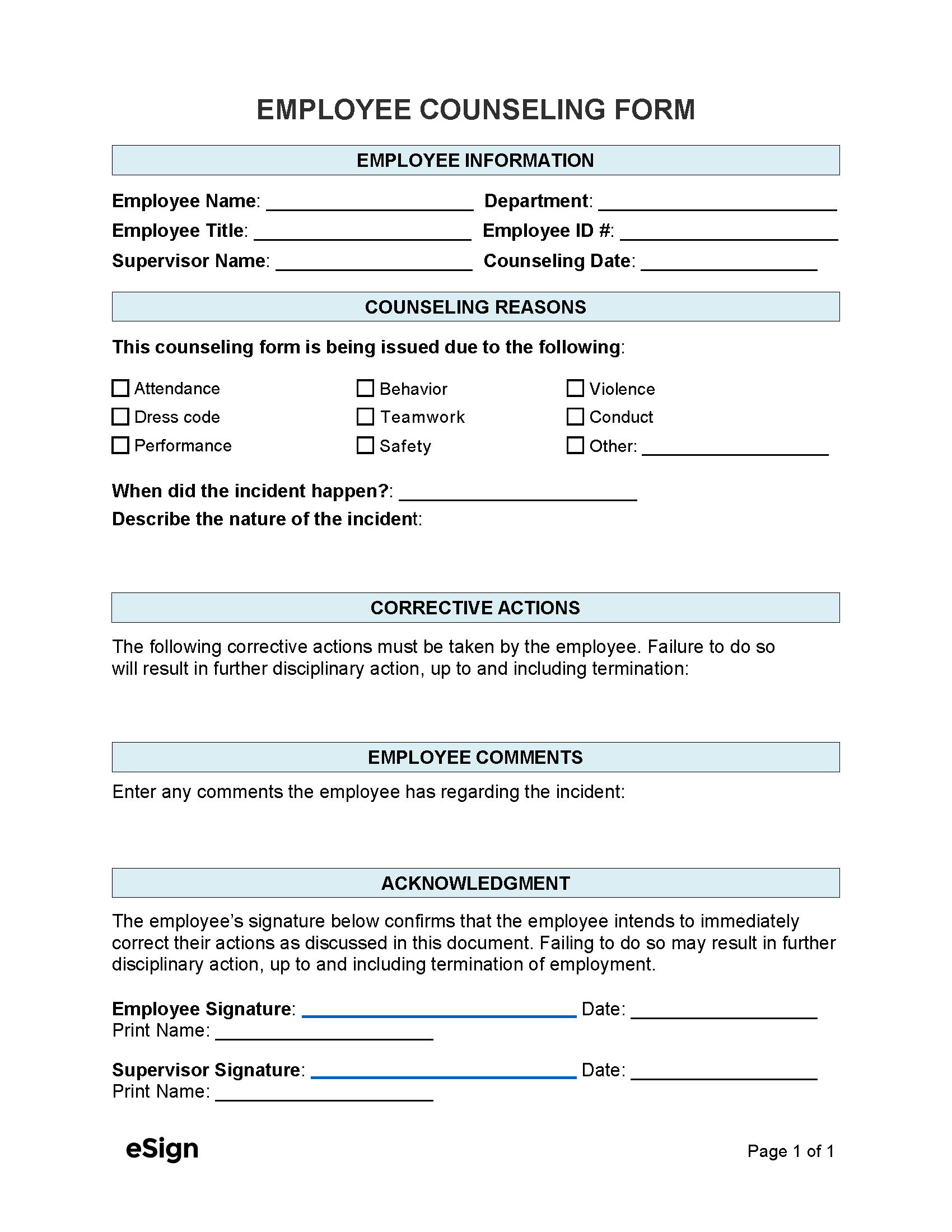Benefits
- Documents a course of action to correct the issue.
- Provides a reference for future meetings.
- Less confrontation than a warning or reprimand form.
Counseling an Employee
Counseling is a common method of resolving misconduct and can help avoid the need for disciplinary action. It allows the supervisor to voice concerns and for the employee to explain their side of the story.
While counseling is a confidential discussion between the employee and their supervisor, union workers may have a union representative attend.[1] If the employee refuses to sign, a witness may be required to indicate that they witnessed the employee receive the form and refuse to sign.
Sample
Supervisor Name: [SUPERVISOR NAME] Date: [MM/DD/YYYY]
Employee Name: [EMPLOYEE NAME] Employee Department: [EMPLOYEE DEPARTMENT]
Employee Title: [EMPLOYEE TITLE] Employee ID #: [EMPLOYEE ID #]
This counseling form is being issued due to the following:
☐ Dress code
☐ Performance
☐ Teamwork
☐ Safety
☐ Other: [REASON]
When did the incident happen?: [INCIDENT DATE/TIME]
Details of actions: [INCIDENT DETAILS]
[EMPLOYEE COMMENTS]
[CORRECTIVE ACTIONS]
Immediate and sustained improvement is required. Failure to do so will result in appropriate disciplinary action up to and including termination.
By signing this form, the employee confirms they understand the information therein. The employee’s signature does not necessarily indicate agreement.
Employee Signature: Date: ______________
Print Name:[EMPLOYEE NAME]
Supervisor Signature: Date: ______________
Print Name:[SUPERVISOR NAME]
Witness Signature: Date: ______________
(If employee refused to sign) Print Name:[WITNESS NAME]

